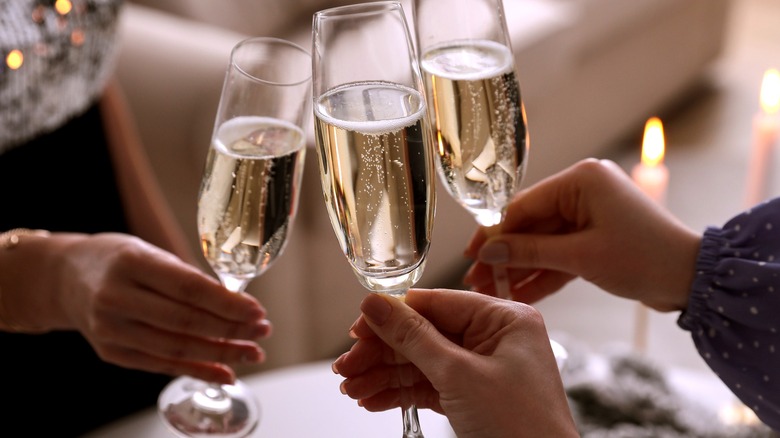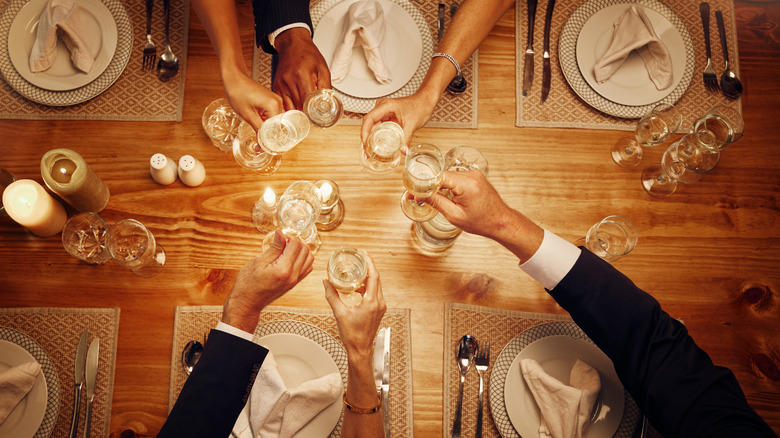You've Probably Been Breaking This Toasting Etiquette Rule
Dining etiquette has been around far longer than you might think, and there are many little-known rules of comportment for fine dining, so if you don't know them all, you're certainly not alone. There's one dictate pertaining to toasting that movies have been training us to violate for decades: clinking glasses.
But, wait — is it wrong to clink one glass against another? After all, Cary Grant did it. In France, strict etiquette rules for clinking glasses command that you not only perform this action but that you do it with everyone at the table. To find out more, Food Republic spoke to author and etiquette expert Nikesha Tannehill Tyson of The Swann School of Protocol in Shreveport, Louisiana. She stated that in a formal dining setting, glasses should never be clinked when toasting. She explained, "Clinking glasses for a toast can pose a risk of damaging delicate glassware, particularly when using fine crystal."
In comparison to glass, its more robust counterpart, crystal has greater fragility and is much more likely to chip or break if not handled carefully. The higher lead content that gives the crystal its superior sparkle, clarity, and other qualities is also what increases its fragility. Even if you don't crack the cup yourself, the repeated clashing can weaken the vessels, increasing their likelihood of breaking in the future. Of course, crystal's composition does make it ping beautifully with that characteristic crystalline sound — elevating the temptation to clink it. But the refined individual will resist such urges!
Another reason not to clink, and additional fundamentals of proper toasting
Another reason clinking stemware is taboo, Nikesha Tannehill Tyson clarified, is the sound is disruptive in a refined venue. "Additionally, in highly formal dining settings, maintaining a quiet and elegant atmosphere is paramount," she stated.
Clinking glasses is not something done in polite environments — rather, it's more suited to steins being crashed together in raucous taverns and certainly not done when using fine glassware. Instead of making contact with one's glass against another's, Tannehill Tyson noted that "making a subtle raise of the glass [is] a more refined gesture." In addition to being the accepted mode of polished behavior, it ensures other diners aren't disturbed by the sounds and that undue attention isn't drawn to your table.
Various other standards are also inherent in properly giving a toast. For instance, guests should allow the host to offer the first salutation. Only if he or she does not give one is it then appropriate for a guest to propose a toast — and it should specifically be a salute to the hosts for their hospitality. Toasts should also be kept brief and positive and should never include anecdotes that would make the spotlighted recipient feel uncomfortable or embarrassed.
The honoree should also not raise his or her own glass when being toasted. This is essentially honoring oneself and is poor etiquette. The toastee should graciously accept the salute with a gesture of acknowledgment, like a nod or a smile.


